NEMA 17 Mounting L Bracket for Stepper Motor for 3d printer
Original Arduino UNO EK (एक) R4 Minima - Made in India
0.96 Inch OLED Display Module SPI/I2C 4pin Blue Color
F450 4-axis Quadcopter Drone Frame Kit with Integrated PCB (Black & White)
0.9V-5V to 5V 600MA USB Output charger step up Mini DC-DC Boost Converter
Let us know!
We'll try to match the price for you
Couldn't load pickup availability



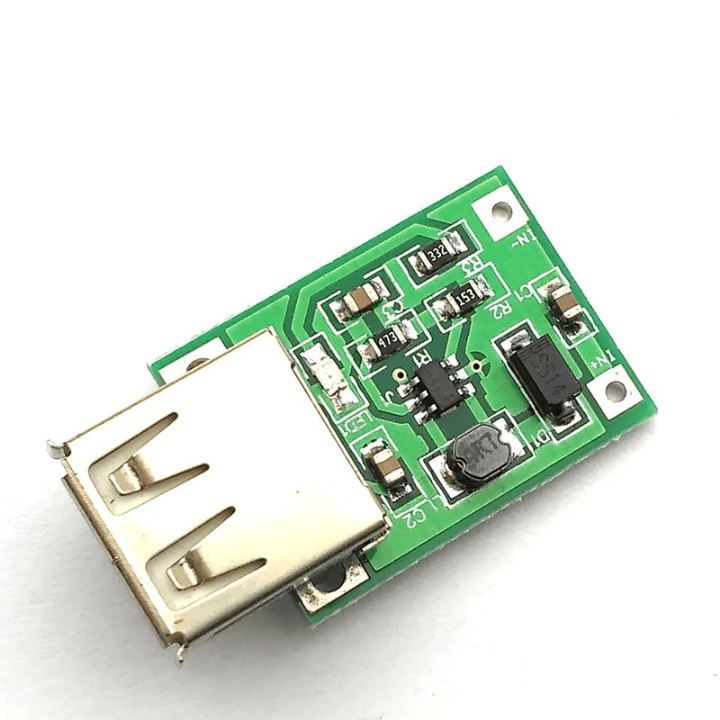
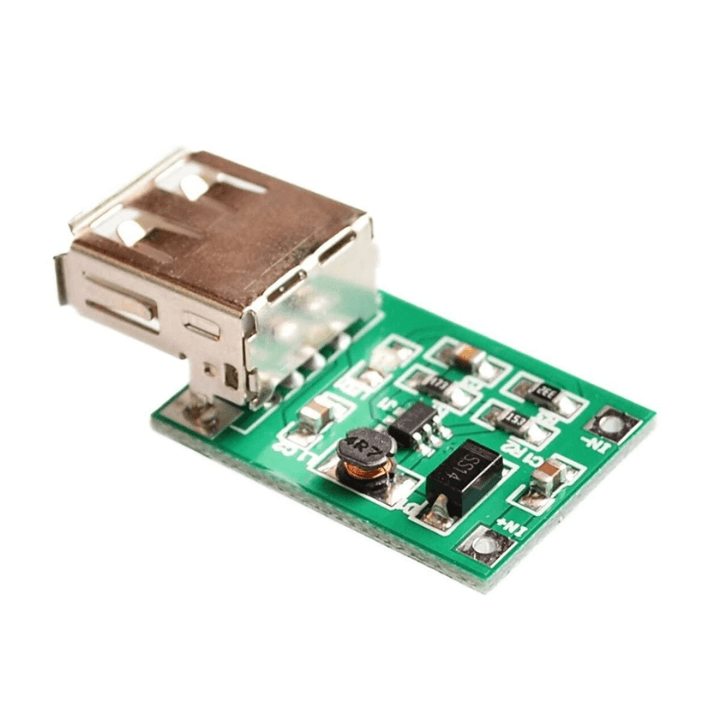
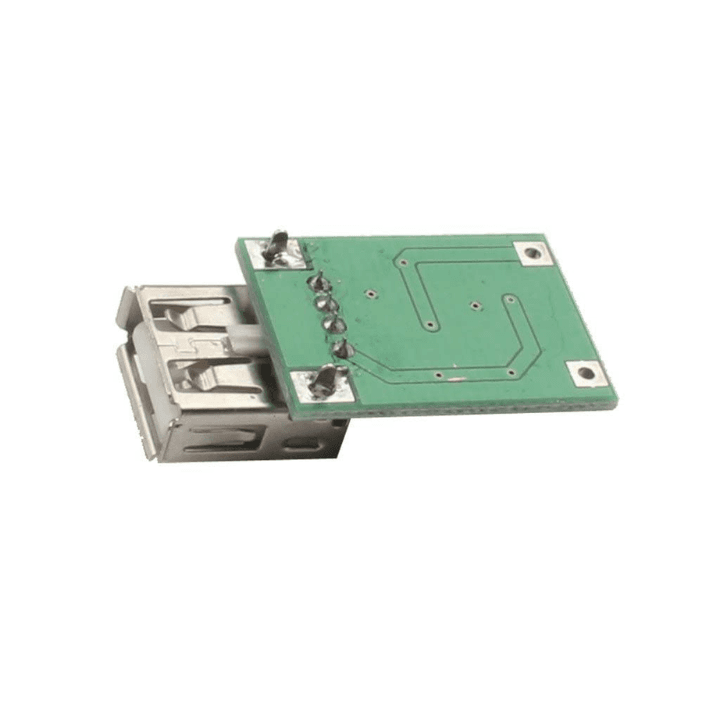
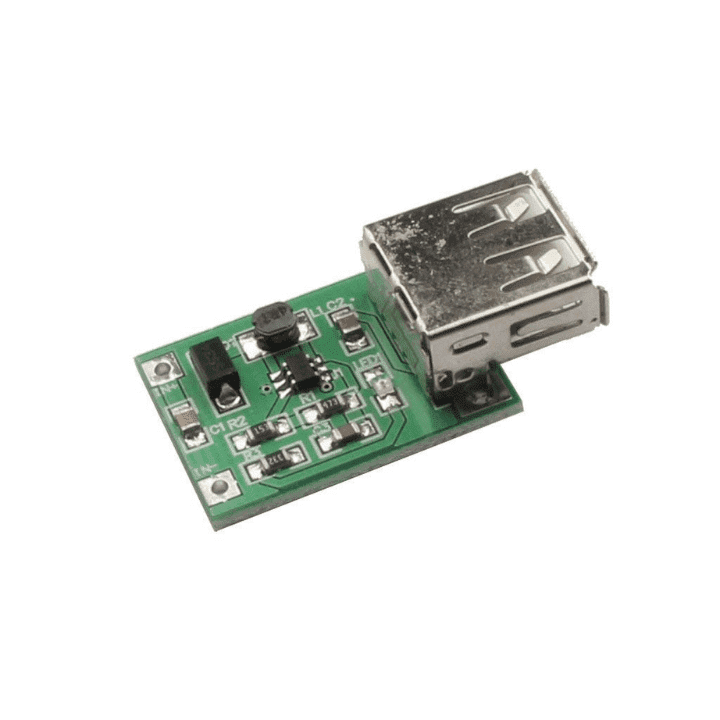
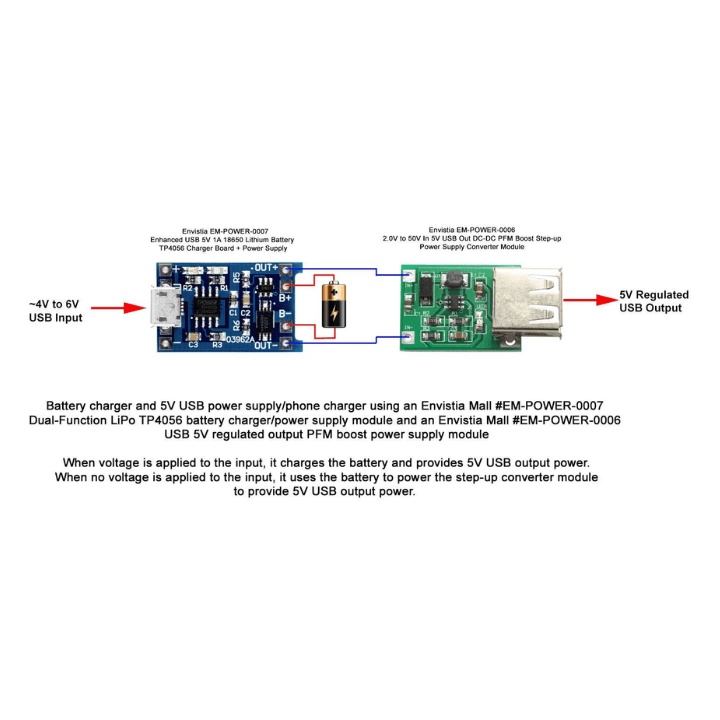
This Step-up Module is highly beneficial as it allows for an input range of 0.9-5V and an output of 5V, which is compatible with a variety of digital devices. As a result, it is an excellent choice for creating a portable charger and can prove useful in USB charger projects and onboard USB device supply solutions, such as GoPro cameras.
Moreover, This boost converter offers versatility in terms of power supply options. It can be powered by a single-cell LiPO or AA size battery, or other similar options. When powered by two AA batteries, it can output a current of 500-600mA. On the other hand, a single AA battery power supply can provide an output of 200 mA current supply, making it ideal for mobile phones, cameras, single-chip, and digital products supply.
| Input voltage | 0.9V – 5V |
| Output voltage | 5.1 – 5 .2 V |
| Output Current | Rated 1A – 1.5A (single lithium input), the maximum 1.5A (single lithium input) |
| Efficiency | Up to 96% (the higher the input voltage, the higher the efficiency) |
| Switching frequency | 500KHz |
| Output ripple | 30mV (Max) 20M bandwidth (input 4V output 5.1V 1A) |
| Voltage indication | LED lights with load (input voltage less than 2.7VLED indicator off) |
| Operating Temperature | Industrial (-40°c to + 85°c) |
| Full load temperature rise | 30°c |
| Quiescent Current | 130 uA |
| Load regulation | ± 1% |
| Voltage regulation | ± 0.5% |
| Dynamic response speed | 5% 200 uS |
| Short circuit protection | None (Please use the lithium battery with protection) |
| Input Reverse Polarity Protection | None |
| Connection | Welding |
| Input | IN+Postive, IN-Negative |
| Output | USB Output |
A DC-DC converter is a device or electronic circuit that enables the conversion of direct current (DC) from one voltage level to another. It allows for the temporary storage of electrical energy and facilitates its conversion to a different voltage level. DC-DC converters are often utilized in portable electronic devices like cell phones and laptops, which rely on battery power. In addition, they are commonly used in automotive applications as an intermediary between different voltage level systems within the vehicle.
To achieve the desired output voltage, DC-DC converters use high-frequency switching and incorporate inductors, transformers, and capacitors as part of their high-frequency power conversion circuits. This enables them to modify and regulate the input voltage to the desired level, thereby ensuring efficient use of energy.
A device or electronic circuit called a DC-DC converter is employed to convert direct current (DC) from one voltage level to another. It enables the temporary storage of electrical energy, which is then converted into a different voltage level. DC-DC converters find widespread use in portable electronic gadgets like laptops and cell phones, which rely on batteries for power. Additionally, they serve as intermediaries between different voltage-level systems within an automobile in automotive applications. These converters are high-frequency power conversion circuits that utilize high-frequency switching and components like transformers, inductors, and capacitors.